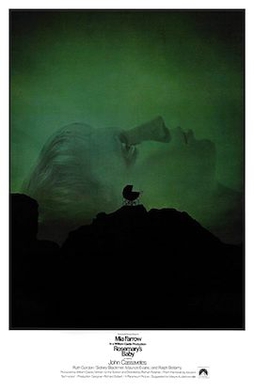A blog formerly known as Bookishness / By Charles Matthews
"Dazzled by so many and such marvelous inventions, the people of Macondo ... became indignant over the living images that the prosperous merchant Bruno Crespi projected in the theater with the lion-head ticket windows, for a character who had died and was buried in one film and for whose misfortune tears had been shed would reappear alive and transformed into an Arab in the next one. The audience, who had paid two cents apiece to share the difficulties of the actors, would not tolerate that outlandish fraud and they broke up the seats. The mayor, at the urging of Bruno Crespi, explained in a proclamation that the cinema was a machine of illusions that did not merit the emotional outbursts of the audience. With that discouraging explanation many ... decided not to return to the movies, considering that they already had too many troubles of their own to weep over the acted-out misfortunes of imaginary beings."--Gabriel García Márquez, One Hundred Years of Solitude
Saturday, October 8, 2016
Rosemary's Baby (Roman Polanski, 1968)
I'm not boasting when I say that horror movies don't scare me. Sometimes I wish they did -- I'm missing out on the fun. It's just that since I learned to watch films analytically, studying performance and camerawork and storytelling, I usually see through the formulas of genre films. I know, for example, how to anticipate the surprises when you think that everything's okay and suddenly it isn't anymore -- e.g., the shocker moments in Wait Until Dark (Terence Young, 1967) or Carrie (Brian De Palma, 1976). The best I can hope for from a scary movie is to feel unsettled, which is what Rosemary's Baby does to me. I've seen it often enough to know where it's going, but when it arrives -- especially in the conception scene and in the final reveal -- I invariably suspend my analysis long enough to be drawn in. As director and screenwriter, Roman Polanski is a master, providing lovely, creepy bits like the figures that tiptoe across the background in the scene in which Rosemary (Mia Farrow) thinks she's alone in the apartment. But to my mind the film succeeds mostly because of Farrow's performance: She brings just the right amount of vulnerability to the role -- she doesn't even need the makeup-induced pallor to convince us that she is prey to something terrible. It always strikes me as odd that she has never earned an Oscar nomination. But all the performances in Rosemary's Baby are top-notch, starting with the one that did win an Oscar, Ruth Gordon's deliciously vulgar Minnie Castevet, who pronounces "pregnant" as if it had three syllables. John Cassavetes succeeds in the difficult role of Guy, Rosemary's husband; he has to be plausible as the sympathetic, loving spouse at the start -- giving in to Rosemary's desire for the fatal apartment -- but just abrasive enough with his wisecracks to suggest the cynicism and careerism that leads him to sell his soul to the devil-worshipers. Ralph Bellamy also has to be plausibly caring as Dr. Sapirstein to convince Rosemary and the audience that he's on the right side, while also preparing us for later revelations. Bellamy had a long and interesting career, from the schnook who gets the girl taken away from him by Cary Grant in The Awful Truth (Leo McCarey, 1937) and His Girl Friday (Howard Hawks, 1941), to the distinguished, gentlemanly, but sometimes sinister character in films like Trading Places (John Landis, 1983) and Pretty Woman (Garry Marshall, 1990). It's also good to see other veteran actors -- Sidney Blackmer, Elisha Cook Jr., and even that well-cured ham Maurice Evans -- doing fine ensemble work. Richard Sylbert's production design makes the most of the spooky gothic apartment house -- the exteriors are of the Dakota, but the interiors are sets. And Krzysztof Komeda, who had worked with Polanski in Poland, provides a score that's atmospheric without being overstated -- until it needs to be.
Links:
Elisha Cook Jr.,
John Cassavetes,
Krzysztof Komeda,
Maurice Evans,
Mia Farrow,
Ralph Bellamy,
Richard Sylbert,
Roman Polanski,
Rosemary's Baby,
Ruth Gordon,
Sidney Blackmer
Subscribe to:
Posts (Atom)
